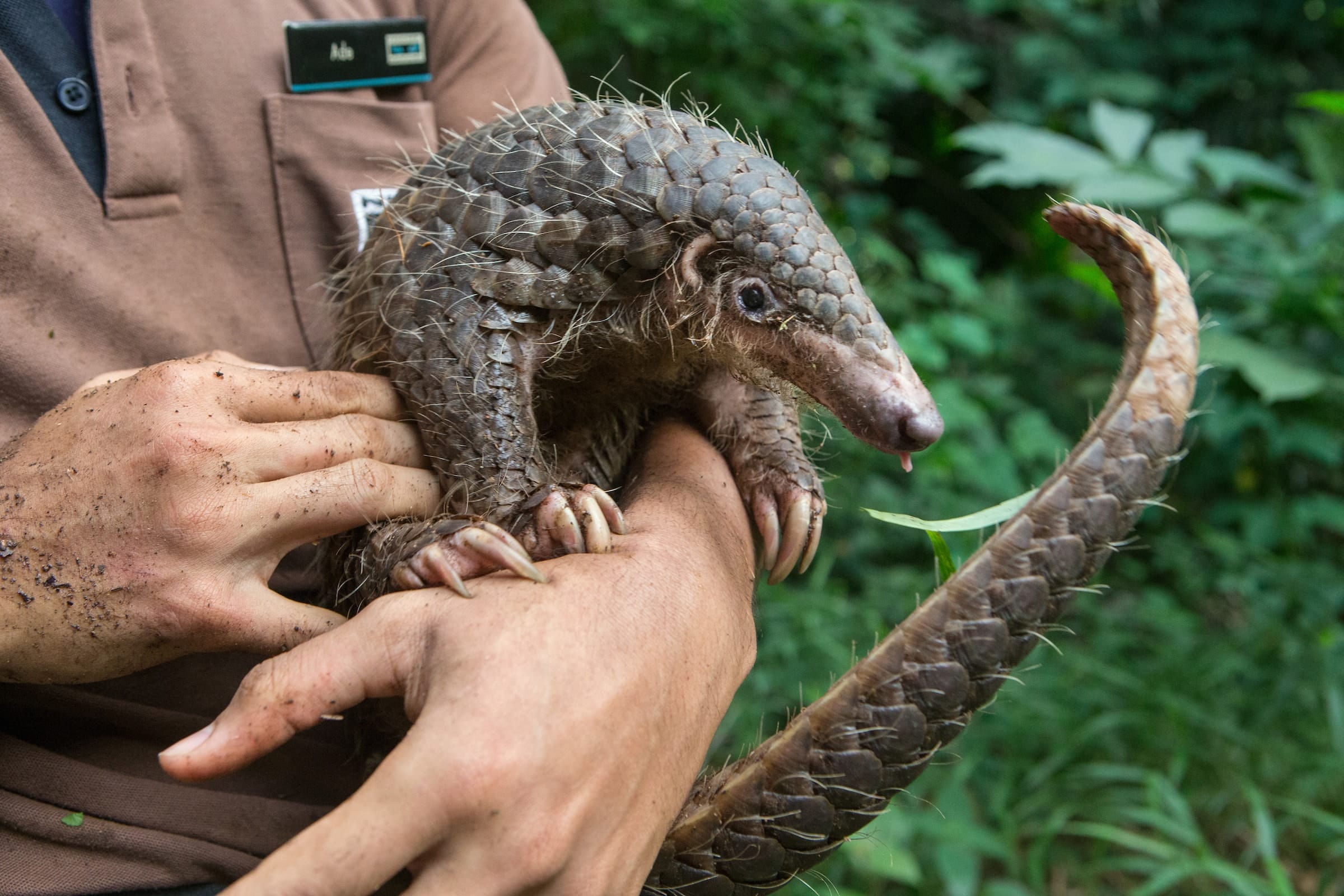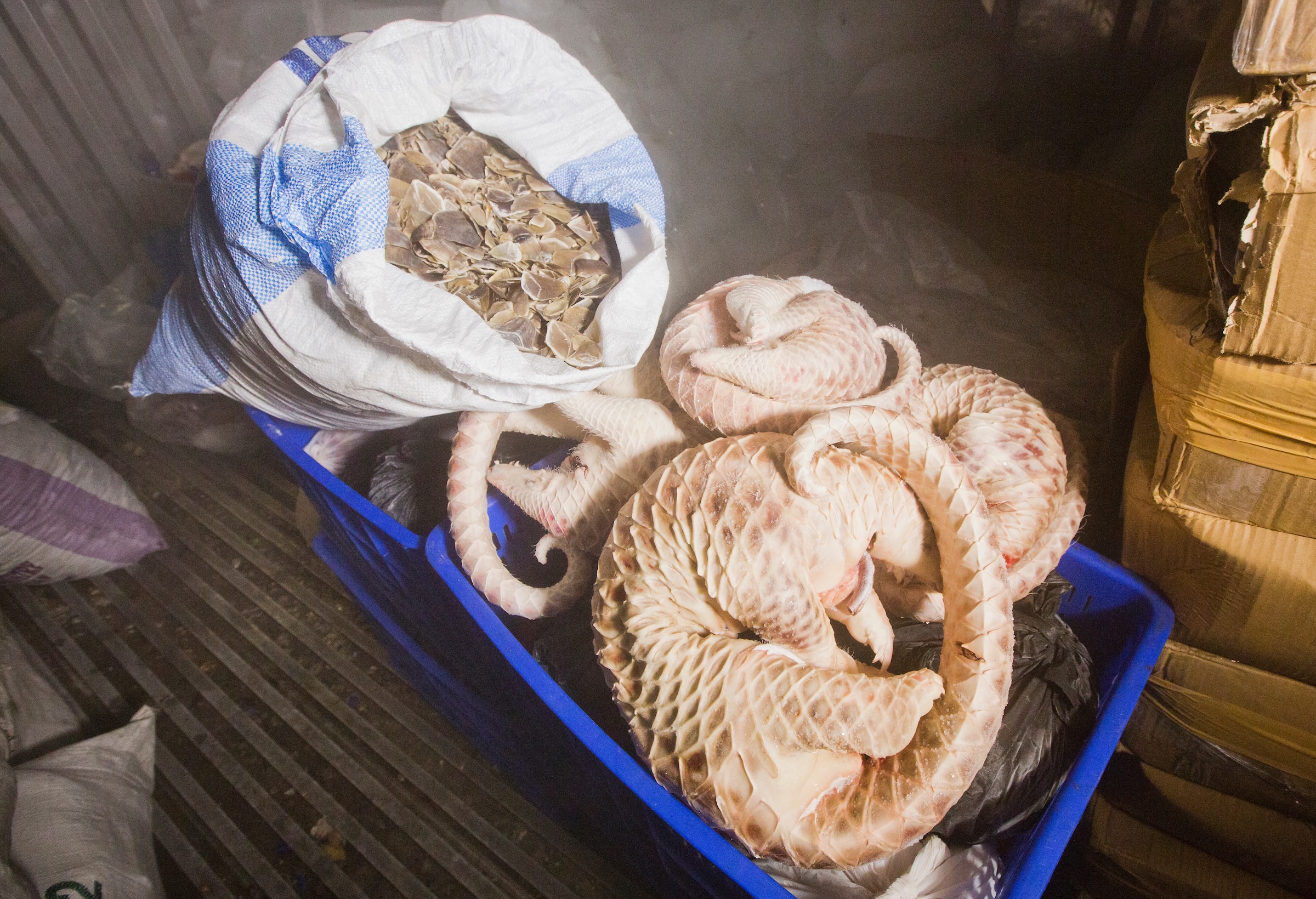Mongabay reports that illegal wildlife trafficking activity has increased online during the COVID-19 pandemic. This is largely due to Southeast Asian governments placing heightened travel restrictions, trade suspensions, and lockdowns between countries, which prevented traffickers from conducting business as usual. Despite this decrease in trafficking recorded by authorities, wildlife criminals have taken to social media in lieu of regular on-the-ground activities.
Trade in illegal wildlife products, such as pangolin scales and meat, continues to proliferate online, with criminals advertising these products on popular platforms like Facebook. The low risk and anonymity of conducting illegal trade online makes it more alluring and easier for traffickers to connect with buyers. Online trafficking is also harder to trace, with limited law enforcement capacity and encrypted transactions masking a lot of trade. Wildlife criminals are also stockpiling pangolin scales, elephant ivory, rhino horns, and other in-demand illegal products while the pandemic continues. This ensures they will have large quantities of these products available for shipping once the pandemic passes and border restrictions loosen.
The illegal trade in wildlife products is a major threat to highly endangered species, such as pangolins, and the combined measures of authorities and the online platforms being abused by traffickers will be necessary to prevent further growth of this heinous market.
Read the full article here.



